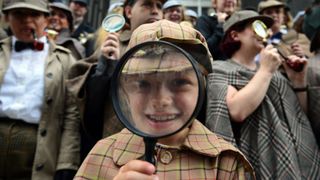Human behavior
Explore Human Behavior
Editor's Picks
Latest about Human Behavior

'I'm as happy as I've ever been in my life': Why some people feel happiness near death
By Mattias Tranberg published
A palliative care researcher explains how death can help people appreciate life.

30,000 years of history reveals that hard times boost human societies' resilience
By Stephanie Pappas published
Human societies that experience downturns do a better job of recovering from later disasters, new research finds.

'We're meeting people where they are': Graphic novels can help boost diversity in STEM, says MIT's Ritu Raman
By Alexander McNamara published
In a new series of comics, where young, female scientists take center stage, MIT's Ritu Raman explains how the format can inspire the next generation of young people into the world of STEM.

Why do people feel like they're being watched, even when no one is there?
By Angely Mercado published
The causes range from innocuous media exposure to severe mental illness.

Why did the atomic bomb dropped on Hiroshima leave shadows of people etched on sidewalks?
By Stacy Kish last updated
The nuclear bombs dropped on Hiroshima and Nagasaki at the end of WWII left shadows of people on the ground and buildings. Here's why.

Why do babies rub their eyes when they're tired?
By Ashley Hamer published
Babies usually rub their eyes when they're tired, but why?

Best movies about famous scientists that aren't Oppenheimer
By Erin Macdonald last updated
Oppenheimer cleaned up at the Oscars this year, so what better time to look back at the best biopics based on history's most influential scientists?

What's the difference between deductive reasoning and inductive reasoning?
By Alina Bradford, Mindy Weisberger, Nicoletta Lanese last updated
Deductive reasoning and inductive reasoning are easy to mix up. Learn what the difference is and see examples of each type of scientific reasoning.
Sign up for the Live Science daily newsletter now
Get the world’s most fascinating discoveries delivered straight to your inbox.





